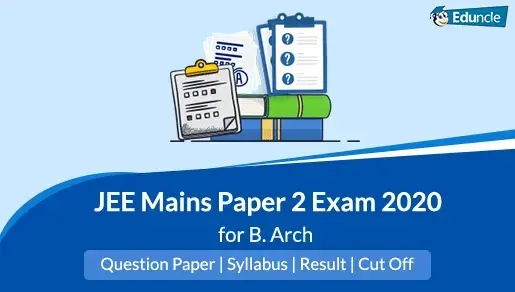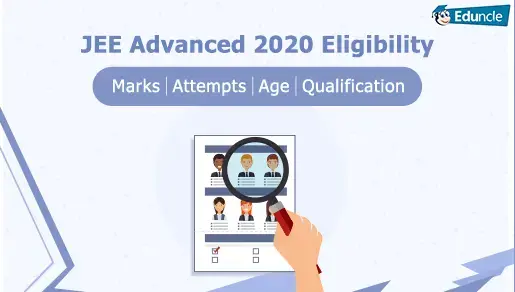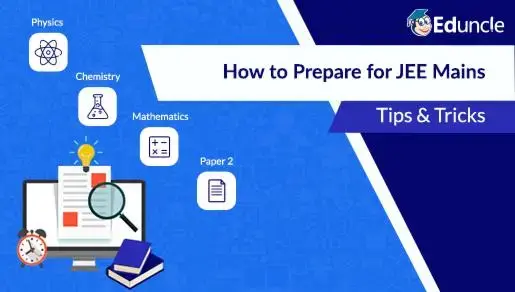Being an IIT JEE or NEET aspirant, you have to face quite a tough competition to be an achiever in these exams.
After NTA has taken over the charges of conducting these exams, many good changes were introduced like JEE would be conducted twice a year in an online mode only.
Moreover, making it easier for students to get the quality education right into their own cities, NTA is all set to start FREE Coaching Centers and Test Practice Centers for JEE & UGC NET in around 3000 cities across India.
Taking ahead this initiative, the National Testing Agency has also started providing FREE Video Lectures to the JEE & NEET Students. These video lectures are prepared by Top IIT Faculties & Subject Specialist to ensure that the students would get a quality education for scoring well in their respective exams.
With the advancements in technology & media, the virtual learning is ruling across the world and so in India. Keeping up the importance of visual and virtual learning in mind, it’s a great initiative that NTA has taken to provide FREE Learning to IIT JEE, NEET & UGC NET aspirants in terms of FREE Test Practice Centers as well as NEET & IIT JEE Video Lectures by Top Faculty Team.
In this blog, we’ll tell you about where and how you can access Free IIT JEE & NEET video lectures and what topics you can learn from these lessons.
FREE Online Video Lecturers by NTA for IIT JEE and NEET Students
Saving up your precious time & money, these NEET & IIT JEE video lectures by NTA are surely going to help most of the students residing in Urban as well as Rural areas.
One can use these online video lectures anytime, anywhere to grasp the concepts and revise the chapters at their convenience.
Check out the important topics and links to watch NEET & IIT JEE Video Lectures for Mathematics, Physics, Chemistry and Biology which will be helpful for the preparation of these exams.
Important Topics of Physics
You must be aware of the complete syllabus of IIT JEE Physics and NEET Physics. Here we are going to discuss important topics of Physics which can help you to score enough marks for these exams.
| S. No. | Topics |
| 1 | Refraction at the Spherical Surface and by Lenses: Ray Optics and Optical Instruments |
| 2 | Total Internal Reflection: Ray Optics and Optical Instruments |
| 3 | Refraction of Light: Ray Optics and Optical Instruments |
| 4 | The Mirror Equation: Ray Optics and Optical Instruments |
| 5 | Viewing Objects: Eyes as an Optical Instrument: Ray Optics and Optical Instruments |
| 6 | Microscopes and Telescopes: Ray Optics and Optical Instruments |
| 7 | Refraction through a Prism and Dispersion: Ray Optics and Optical Instruments |
| 8 | Optics: Reflection of Light and Formation of Images |
| 9 | Power of Lenses and Combination of Thin Lenses in Contact |
| 10 | What is Light? |
| 11 | Introduction, Center of Mass - System of Particles and Rotational Motion |
| 12 | Torque and Angular Momentum- System of Particles and Rotational Motion |
| 13 | Rotational Motion about a Fixed Axis- Kinematics and Dynamics |
| 14 | Rotational Motion about a Fixed Axis- Angular Momentum |
| 15 | Moment of Inertia, and Theorems of Perpendicular and Parallel Axes |
| 16 | Motion of Center of Mass, Relative Motion and Reduced Mass |
| 17 | Vector Products, Angular Velocity and Angular Acceleration |
| 18 | Equilibrium of a Rigid Body, Moments and Center of Gravity |
| 19 | Planar Motion: Motion in a Plane |
| 20 | Introduction to Kinematics: Basic Mathematical Concepts |
| 21 | Excitement in Physics |
| 22 | Wheatstone's Bridge, Meter Bridge and Potentiometer |
| 23 | Kirchhoff's Laws: Current and Electricity |
| 24 | Equivalent Circuits: Current and Electricity |
| 25 | Series and Parallel Combinations of Cells: Current and Electricity |
| 26 | Series and Parallel Combination of Resistances |
| 27 | Electrical Energy and Power |
| 28 | Electromotive Force and Ohm's Law: Current and Electricity |
| 29 | Mobility and Temperature Dependence of Resistivity: Current and Electricity |
| 30 | Drift Velocity and Resistance |
| 31 | Electric Current and Current Density: Current and Electricity |
| 32 | LCR Circuit- Graphical Solution: Alternating Currents |
| 33 | LCR Circuit- Power Factor: Alternating Currents |
| 34 | LCR Circuit- Analytical Solution, resonance: Alternating Currents |
| 35 | LCR Circuit- Applications: Alternating Currents |
| 36 | Capacitive Circuits: Alternating Currents |
| 37 | Equivalent Circuits |
| 38 | Circuits with Resistance and Inductance |
| 39 | Series and Parallel Combinations of Cells |
| 40 | Series and Parallel Combinations of Resistances |
| 41 | Electromotive Force and Ohm's Law |
| 42 | Drift Velocity and Resistance |
| 43 | Mobility and Temperature Dependence of Resistivity |
| 44 | Electric Current and Current Density |
| 45 | Faraday's Law of Induction: Mutual and Self-inductance |
| 46 | Self-inductance and Energy in a Magnetic Field: Electromagnetic Induction |
| 47 | Faraday's Law of Induction: Induced EMF |
| 48 | Electromagnetic Induction: Electromagnetic Induction |
| 49 | Diamagnetic, Paramagnetic and Ferromagnetic Materials, the Magnetic Field of the Earth |
| 50 | Magnetization and Application of Ampere's Law |
| 51 | Magnetization: Magnetism and Matter |
| 52 | Moving Coil Galvanometer, Ammeter and Voltmeter; Potential Energy of a Dipole |
| 53 | Force and Torque due to the Magnetic Field |
| 54 | Forces on Bodies: Problems Involving Multiple Bodies |
| 55 | Motion Charges in the Presence of Electric and Magnetic Fields |
| 56 | Entropy 7 T-S Diagram |
| 57 | Electrostatic Potential and Potential Energy |
| 58 | Motion in a Straight Line |
| 59 | Applications of Gauss's Law |
| 60 | Field Due to Dipole and Continuous Charge Distributions |
| 61 | Dimensions of Physical Quantities, Dimensional Analysis and its Applications |
| 62 | The Concept of Electric Field |
| 63 | Accuracy and Precision of Measuring Instruments |
| 64 | Superposition Principle for Electrostatic Force |
| 65 | Measurements and Introduction to Error Analysis |
| 66 | Impact and Collision |
| 67 | Work and Energy: Basic Concepts Related to Constant and Variable Forces; Kinetic Energy |
| 68 | Transformers |
| 69 | Problem Solving Newton's Second Law |
| 70 | LC Oscillations |
| 71 | Thermal Properties of Matter |
| 72 | LCR Circuit: Power Factor |
| 73 | LCR Circuit: Applications |
| 74 | LCR Circuits: Analytical Solution Resonance |
| 75 | Electrical Energy and Power: Example Problems |
| 76 | Capacitive Circuits |
| 77 | LCR Circuit: Graphical Solution |
| 78 | Work-Energy Theorem and Concept of Potential Energy |
| 79 | Circuits with Resistance and Inductance |
| 80 | Wheatstone's Bridge, Meter Bridge and Potentiometer |
| 81 | Kirchhoff’s Law |
| 82 | Series and Parallel Combinations of Cells |
| 83 | Equivalent Circuits |
| 84 | Series and Parallel Combinations of Resistances |
| 85 | Electrical Energy and Power |
| 86 | Electromotive Force and Ohm's Law |
| 87 | Mobility and Temperature Dependence of Resistivity |
| 88 | Drift Velocity and Resistance |
| 89 | Electric Current and Current Density |
| 90 | Electric Energy and Power |
| 91 | Work-Energy And Impulse-Momentum Principles: Conservation Of Momentum |
| 92 | Mechanical Properties of Fluids |
| 93 | Mechanical Properties Of Solids |
| 94 | Energy Stored in Capacitors, Field in Dielectrics, Gauss's Law in Dielectrics |
| 95 | Laws of Motion: Newton's First Law of Motion |
| 96 | Laws of Motion: Newton's Second and Third Laws of Motion |
| 97 | Forces on Bodies: Contact And Non-Contact Forces |
| 98 | Forces on Bodies: Systems Involving Strings or Springs |
| 99 | Forces on Bodies: Procedure to Solve Problems |
| 100 | Simple Experiments Based on Basic Principles of Mechanics |
| 101 | Microscopic and Macroscopic Approach to Thermal Properties |
| 102 | Kinetic Theory of Gases & Equation of Ideal Gas |
| 103 | Equipartition of Energy |
| 104 | Mean Free Path And Non-Ideal Gas |
| 105 | Introduction to Thermodynamics: First Law and Internal Energy |
| 106 | Magnetostatics: Introduction and Biot Savart Law |
| 107 | First Law: Work Done in Different Thermodynamic Processes |
| 108 | Magnetic Field for A Straight Conductor and Ampere's Law |
| 109 | Heat Engine and Refrigerators |
| 110 | Generalization of Ampere's Law and its Applications |
| 111 | Carnot Engine and Carnot Theorem |
| 112 | More Applications of Ampere's Law |
| 113 | Electric Field and Potential and Concept of Capacitance |
| 114 | Introduction to Vector Operations |
| 115 | Potential due to Different Charge Distributions |
| 116 | Introduction to Vectors |
| 117 | Gravitational Laws |
| 118 | Maxwell's Equations and Electromagnetic Waves |
| 119 | Conservation Laws, Fundamental Forces, Estimation of Distances |
| 120 | Displacement Current |
| 121 | Gravitation |
| 122 | Determination of Gravitational Constant (G) |
| 123 | Galilean Laws, Kepler Laws, Centripetal Forces: Gravitation |
| 124 | Concept of Waves and Electromagnetic Waves |
| 125 | AC Current Generator |
| 126 | Concept of charge and Coulomb’s law: Electric Charges and Fields |
| 127 | Cylindrical and Spherical Capacitors, Series and Parallel Combinations |
| 128 | Frame of Reference, Motion in a Straight Line, Uniform |
| 129 | Gauss's Law in Electrostatics |
| 130 | Units of Measurement, Systems of Units, SI Units, Fundamental |
| 131 | Physical World |
These are the important topics of Physics for the IIT JEE and NEET preparation. You may check the video lecture explained in detail from the given link: Watch Free IIT JEE & NEET Video Lectures for Physics
Get Free PDF of NEET 2020 Model Papers & Solutions
Important Topics of Mathematics
Mathematics is a very important subject to score well in any competitive exams. One needs a lot of practice to become a pro in Mathematics and you must have basic knowledge and clear concepts before starting the practice. Go through the important topics for IIT JEE Mathematics below:
| S. No. | Important Topic Name |
| 1 | Quadratic Equations |
| 2 | Differential Equations |
| 3 | Inverse Trigonometric Functions |
| 4 | Limits |
| 5 | Straight Lines |
| 6 | Complex Numbers |
| 7 | Three Dimensional Geometry |
| 8 | Inverse Trigonometric Functions |
| 9 | Permutation & Combination |
| 10 | Circles |
| 11 | System of Linear Equations |
| 12 | Statistics |
| 13 | System of Linear Equations |
| 14 | Sequences and Series |
| 15 | Binomial Theorem |
| 16 | Linear Inequality in Two Variables |
| 17 | Sequences and Series |
| 18 | Determinants |
| 19 | Definite Integral |
| 20 | Indefinite Integral |
| 21 | Solution of Triangles |
| 22 | Derivatives |
| 23 | Matrices |
| 24 | Properties of Triangles |
| 25 | Vectors |
| 26 | Permutation & Combination |
| 27 | Properties of Triangles |
| 28 | Probability |
| 29 | Trigonometric Functions |
| 30 | Inverse Trigonometric Functions |
| 31 | Continuity and Differentiability |
| 32 | Linear Inequalities |
| 33 | Complex Numbers |
| 34 | Set Theory |
| 35 | Relations and Functions |
| 36 | Principle of Inclusion and Exclusion |
| 37 | Straight Lines |
| 38 | Logarithm |
| 39 | Pigeonhole Principle |
| 40 | Mathematical Induction |
Mathematics plays a vital part in the preparation of IIT JEE and NEET as well. The various topics like differential equation, calculus and quadratic equations are used in even questions of Physics and Chemistry subjects.
Have a look at the free video lectures to clear your fundamental concepts of Mathematics here: Watch Mathematics Video Lectures
Important Topics for Chemistry
Chemistry is a common subject for the IIT JEE and NEET exams which consists Organic, Inorganic and Physical chemistry. You can check the important topics of IIT JEE Chemistry and NEET below:
| S. No. | Important Topics of Chemistry |
| 1 | Organic Compounds Containing Nitrogen |
| 2 | Redox Reactions |
| 3 | Solutions |
| 4 | Organic Chemistry: Some Basic Principles and Techniques |
| 5 | Coordination Compounds |
| 6 | d- and f- Block Elements |
| 7 | States of Matter: Gases and Liquids |
| 8 | Electrochemistry |
| 9 | Structure of The Atom |
| 10 | Chemical Thermodynamics |
| 11 | Aldehydes, Ketones & Carboxylic Acids |
| 12 | Polymers |
| 13 | Chemical Bonding & Molecular Structure |
| 14 | Haloalkanes & Haloarenes |
| 15 | Hydrocarbons |
| 16 | Aromatic Hydrocarbons |
| 17 | Alkynes |
Chemistry is a common subject for the IIT JEE and NEET exams. You can go for the explanation of these topics of Chemistry here: Watch Free NEET & IIT JEE Video Lectures for Chemistry
Important Topics for Biology
| S. No. | Important Topics |
| 1 | Introduction to Biology |
| Photosynthesis and Respiration: |
|
| 2 | Photosynthesis |
| 3 | Respiration |
| Cell Structure and Function: |
|
| 4 | Cell The Unit of Life |
| 5 | Biomolecules |
| 6 | Cell Cycle and Cell Division |
| Structural Organization: |
|
| 7 | Anatomy of Flowering Plants |
| 8 | Structural Organization in Animals |
| Genetics and Evolution: |
|
| 9 | Molecular Basis of Inheritance |
| 10 | Evolution |
| 11 | Principles of Inheritance and Variation |
| 12 | Concepts Summary and Evolution |
| Reproduction: |
|
| 13 | Reproduction in Organisms |
| 14 | Human Reproduction |
| 15 | Sexual Reproduction in Flowering Plants |
| Human Physiology: |
|
| 16 | Digestion and Absorption |
| 17 | Breathing and Exchange of Gases |
| 18 | Locomotion and Movement |
| 19 | Chemical Coordination and Integration |
| 20 | Neural Control and Coordination |
| 21 | Body Fluids and Circulation |
| 22 | Excretory Products and their Elimination |
| Plant Physiology: |
|
| 23 | Transport in Plants |
| 24 | Photosynthesis |
To watch the online lectures for Biology, you may click on the following link: Check out the Free NEET Video Lectures for Biology Subject
Keep reading the blog further to know the Do’s and Don’ts of watching the video lectures for the preparation of the IIT JEE and other competitive exams.
You may also like to read the blogs about -
Do’s and Don’ts of Learning with Free IIT JEE & NEET Video Lectures
The video lecture will help you in preparation but at the same time can be destructive if you give all attention to it. Use these lectures for the better understanding of the topics only. Check out the do’s and don’ts of the video lectures for IIT JEE and NEET below:
Do’s
The video lectures are portable means can be accessed anywhere even with mobile.
The video lectures are the best learning method as things being remembered longer than any other method.
One of the best advantages of video learning is that students can pause, stop and rewind the video so if you have any doubt, you can repeat the video any number of time.
Don’ts
Do not get distracted through other video suggestions displayed beside the video lectures.
Do not waste your time in searching for related videos. You should go to the official NTA site and click on the subject you want to watch the video for.
Buying the gadgets to access the online lectures may be costly for some candidates. Try to access these video lectures with whatever gadgets you have like a mobile or personal computer.
Here we have discussed Do’s and Don’ts of learning with video lectures along with the important topics of Physics, Chemistry, Mathematics & biology for the IIT JEE and NEET preparation. You can find the links to watch free video lectures for individual subjects and know how video lecture can be useful in your preparation.
Another Advantage of Video Lectures is that the huge fee for coaching institutes or study material can be too expensive for many candidates.
NTA has come up with a welcoming idea to provide online lectures for the preparation of IIT JEE and NEET. This step will also help candidates who don’t want to join a coaching institute for any reason for the preparation of IIT JEE, NEET and other competitive exams.
Hope the information shared in the blog will be helpful for you.
If you like the article, do share with your friends and comment below if you have any queries.
All the Best and Happy Preparation



















